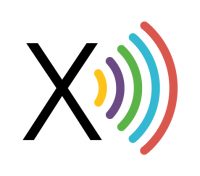Seattle has a rich history of providing productions in American Sign Language as well as presenting events accessible to the Deaf community. Known history began in the late 1970’s when the Pacific Northwest hosted the first (and only) arts camp designed for deaf and hard of hearing children in the nation. Called the Deaf Arts Camp, this was a two-week summer program highlighting 2- and 3-dimensional visual arts, theater and dance; it lasted until 1984.
The 1979 and 1980 Deaf Arts festivals at Seattle Center were watershed events; bringing cultural awareness in history, theater, storytelling and visual arts to the entire Deaf community. This created the impetus for the Deaf Drama and Arts (DDA) Program, hosted by the deaf education program at Seattle Central Community College (SCCC), and led by Jer Loudenback and Rob Roth. Interpreted performances were arranged through collaborations with the Seattle Repertory Theater, Intiman Theatre, ACT Theatre and other theaters. Those performances were publicized through DDA’s monthly newsletter. Deaf playwrights and directors, as well as actors, both deaf and hearing, produced plays adapted into ASL from English Pure as the Driven Snow, as well as original screenplays (Seeing Place, the collaboratively written Windows, and Lewis Merkin’s Language of One).
The Seattle Children’s Theatre, which has a long history of interpreted plays, hired Howie Seago to direct Just So and Other Stories with a deaf and hearing professional cast. They commissioned a new play, Tuck, featuring a Deaf character and sponsored the Deaf Youth Drama Program (DYDP) co-founded by Howie and Billy Seago, which ran for over ten years.
Monthly poetry readings were led by Theron Parker, Jeremy Quiroga, and Ryan Schlecht; later performances about domestic violence, sponsored by ADWAS, were performed by local community actors, volunteers and supporters, both deaf and hearing. Howie Seago taught acting classes at SCCC and with Nat Wilson, they created the Deaf Moose Theatre. These past pioneers, events, and programs continued for many years but ceased by the end of the 90’s due to fiscal issues, limited resources, and changing priorities in the community.
Fast forward to 2010. Deaf Spotlight was created by a group of artists, performers and supporters who needed an outlet for their talents. The “tipping point” was the idea of a Deaf film festival in Seattle:
Rob Roth, May 2011: It was an idea that had been percolating for several years in conversations I had separately with Howie Seago and Jason Plourde (programming director at Three Dollar Bill Cinema which produces the annual LGBT Film Festival). In the fall of 2010, inspired by World Deaf Cinema in the fall of 2010, we asked ourselves, “What are we waiting for?” We finally decided, “Let’s do it!” and the rest is history.
Subsequently, a fantastic committee of passionate believers in giving back to the community through the arts pooled together a wide variety of skills and experience to establish Deaf Spotlight.

